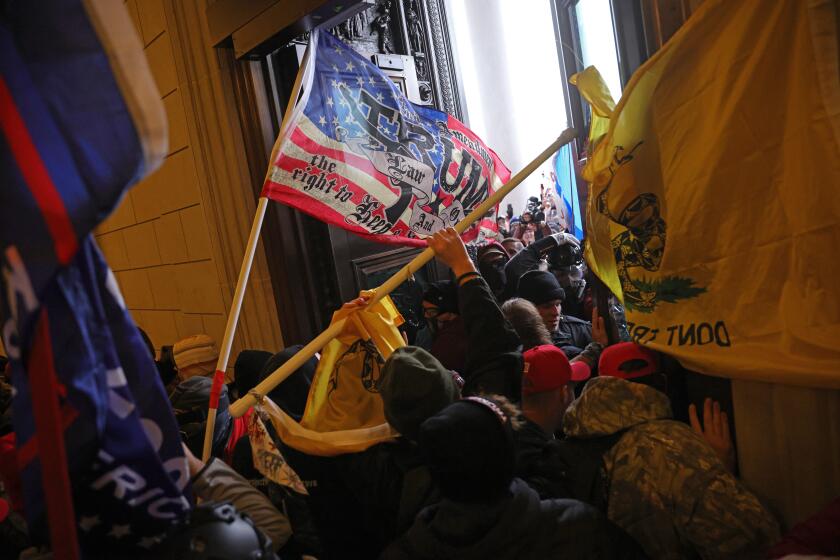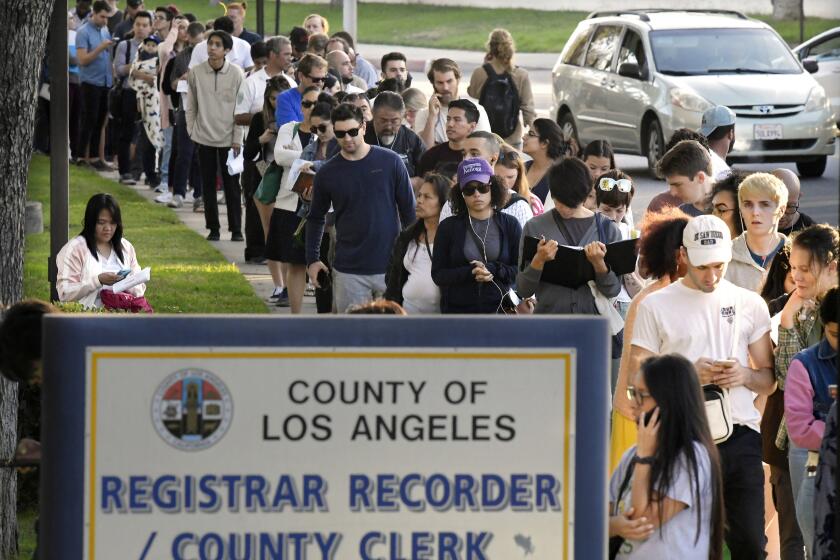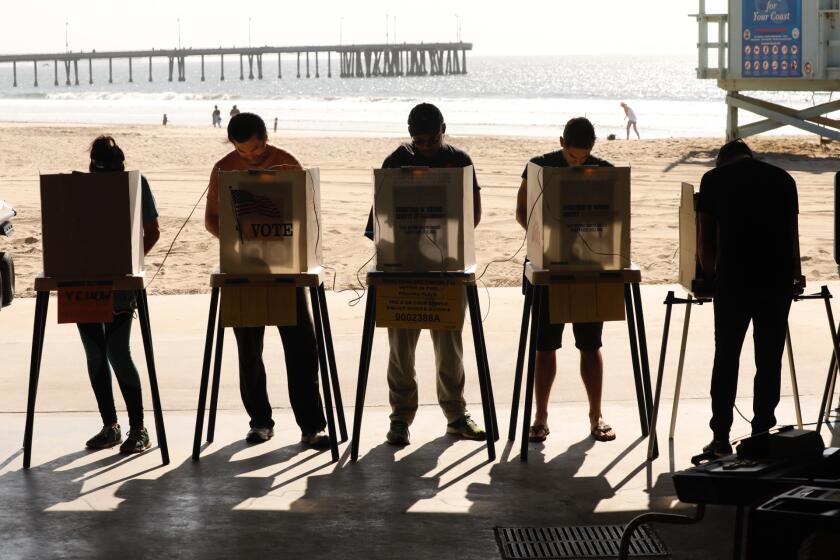Op-Ed: How will future historians judge Jan. 6?

- Share via
For a brief moment last January, in the immediate wake of the assault on the U.S. Capitol, it appeared that the final chapter of the Trump era was being written. After protesters had been cleared from the building, both branches of Congress affirmed, by large majorities, that Joe Biden had been elected president.
In addition, leading Republicans were harshly critical of the attack, putting distance between themselves and President Trump.
“Count me out; enough is enough,” lamented Sen. Lindsey Graham. Senate Minority Leader Mitch McConnell concluded that “the mob” had been “fed lies” and was “provoked by the president and other powerful people.” Even House Minority Leader Kevin McCarthy declared that “the president bears responsibility for Wednesday’s attack on Congress.”
The president incited an attempted violent overthrow of Congress in broad daylight. If we do nothing, we will embolden future violent actors intent on overthrowing our democracy.
With Trump leaving office under a cloud and the protesters being rounded up by the police, the Jan. 6 attack seemed destined to be viewed in history as a dramatic anomaly, a vivid example of self-defeating overreach that revealed the dangers of Trumpism and the limits of tolerable political behavior.
But as we now know, the ship of Trump righted itself quickly. Over the next few months, Republican leaders — including Graham and McCarthy — traveled to Mar-a-Lago to pledge allegiance to Trump, embracing the falsehood that he had actually won the election or at least had good reason to suspect that widespread fraud had occurred. They absolved him of responsibility for the violence and reassured their party’s base that Trump’s grievances were legitimate.
Those steps ushered in a wave of activity that continues to this day: efforts to “audit” the 2020 election returns, punish “disloyal” Republicans, harass and threaten local election officials, alter election laws to make it more difficult for many Americans to cast ballots and prevent nonpartisan bodies from adjudicating election disputes.
American democracy faced many threats in 2021, here’s how ordinary citizens can save us
Given these developments, historians, writing a generation from now, will almost inescapably characterize what happened on Jan. 6 as a significant step in the weakening, even breakdown, of democratic norms and institutions in the United States.
The attack on the Capitol will be regarded as one prong of a multifaceted coup attempt, utilizing force in conjunction with phony legal claims (for example, that Vice President Mike Pence could simply reject electoral votes) to deliver the presidency to a man who had been defeated both in the electoral college and in the popular vote.
It will be remembered not as an anomaly but as a threatening precedent, especially if key sponsors connected to the White House are not charged with any crimes. The event will be seen to have emboldened, rather than chastened, many far-right supporters of Trump, sharpening partisan antagonisms and undermining respect for democratic processes.
To be sure, there will be disagreements among historians; there always are. Some will see Jan. 6 largely as the product of Trump’s particularly twisted psychology, his narcissistic inability to ever believe that he had been fairly defeated. Others will place more emphasis on broader forces that had been building for decades, including the deepening of economic inequalities and the growing racial and ethnic heterogeneity of the country. Historians will debate the roles played by racism, Christian nationalism, militant groups like the Proud Boys and the Democratic Party’s disconnection from parts of the white working and middle classes.
It’s no longer Republicans vs. Democrats. Now it’s Republicans vs. democracy.
Interpretations will also change, as we learn more and gain distance from the events. In recent months, documents released by the House select committee investigating the attack, as well as the dogged work of journalists, have already shifted the contours of the narrative, particularly regarding the participation of Republican leaders. That process will continue, filling in blank spots and altering the details of the story.
However much the details may shift, future historians will look to these events for what they revealed about the political culture of 2020 and what they fostered in American politics in the 2020s and 2030s.
That said, it is all but certain that a revisionist history will also appear, as is common with contentious events. Political movements like Trump’s require historical myths that justify their existence and mobilize energy. The core of this counter-narrative will be that the election was indeed stolen, as is already believed by most Republicans. In the counter-narrative, the violence on Jan. 6 will be diluted and brushed off (one member of Congress has already characterized it as a “normal tourist visit”), and the insurrectionists will be characterized as patriotic defenders of the Constitution. Books and articles will be written fleshing out this perspective, and a sizable segment of Americans will believe it, just as more than 40% still believe the Civil War was not about slavery.
It seems likely, then, that a generation from now there will be a broad consensus among scholars on the causes and consequences of Jan. 6, but that consensus will not extend to the public at large. A more universally shared understanding might have been forged had an independent commission (like the 9/11 commission) been created, as was proposed last spring.
But Senate Republicans, intent on moving on from a crisis created by their party’s leader, rejected that idea; by now, the moment has passed.
The nasty partisan divide that sunders our society and our politics will continue to color retrospective accounts of the drama we witnessed a year ago.
The great danger of this divergence is that it will shape the way we regard elections themselves and whether we trust their officially declared outcomes. Trust is a precious — and necessary — ingredient in a democracy, and thanks to the actions of Trump and his supporters over the past year, it is in short supply.
Alexander Keyssar is a professor of history and social policy at Harvard and the author, most recently, of “Why Do We Still Have the Electoral College?”
More to Read
A cure for the common opinion
Get thought-provoking perspectives with our weekly newsletter.
You may occasionally receive promotional content from the Los Angeles Times.












